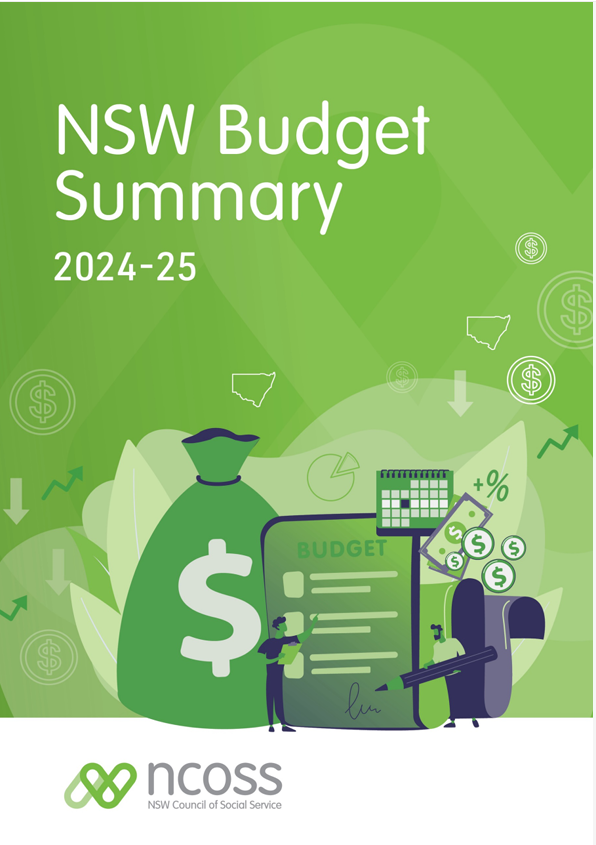The Challenge
Australia’s community service sector delivers essential services to people affected by poverty, disadvantage and inequalityi.
- In NSW, the social service sector employs more than 240,000 staff, provides care and support to over one million individuals each year, and its annual output is worth $15.4 billionii.
- Despite the sector’s highly significant work, the NSW community services sector’s operating environment has become increasingly challenging over the years, due to increased community needs, cost of living crisis, and natural disasters.
- A key driver of the challenges is the long term, chronic underfunding and under investment in the sector, undermining the sector’s ability to support its communities and spiralling descent into a starvation cycle that threatens the sector’s survival and ultimately, social cohesion.
The Facts
Less than 15% of the participating sector leaders in a 2023 study of the Australian Community Sector reported that funding was adequate to cover the cost of full service delivery, wage increases, overhead costs, and to prepare for emergencies or disastersiii.
- Another Australian study found the average indirect costs of the participating not-for-profits was 33% of the total costs, with significant variation between 26% and 47%, while funding agreements often only included indirect costs of between 10% and 20% of overall costsiv.
- Similarly in NSW, 65% of services did not believe that funding enables them to meet community demand, and some reported overspending their budget to meet the needv.
- In addition, 52% of NSW sector leaders reported that current funding arrangements do not cover the important costs like administration, management, and IT required to operate servicesvi
Our Position
Our goal is to achieve a well resourced and sustainable NSW community services sector that is fully equipped to respond to current and emerging community needs. Achieving this goal will involve many stakeholders across the community services sector and the NSW government, who is the primary funder and purchaser of the community services for the people of NSW.
Stakeholder collaboration can be strengthened with a clear acknowledgement of the unique characteristics of community services work, addressing power imbalance, and using principles that are trust building, community focused, equity driven and evidence based for designing, commissioning and implementing services.
Current Policy Priorities
The underpinning principles of trust, community, evidence and equity must support the development of user friendly, consistent, transparent contracting mechanisms to enhance the sector’s capacity and skills, and achieve value for the NSW public, in both financial and social terms. The NSW Government and the sector have already commenced this process with the Secure Jobs and Funding Certainty (SJFC) initiative, which aims to deliver greater certainty on contracting, funding and job security for the community services sector. The priorities below pertain to the SJFC scope.
Policy Priority
Description
Immediate funding boost to match the true service delivery costs
Provide an immediate boost of 20 per cent to recurrent baseline funding enable the sector to manage increased costs and risks. A one off funding increase should cover the cost of Portable Long Service Leave, cybersecurity and insurance premium increases which are not adequately factored into contract funding. An injection of funding will avert further weakening of the sector and the communities that it serves.
Consistent and transparent indexation approach
Determine an annual indexation formula specifically for the community services sector, similar to the indices produced by the Australian Bureau of Statistics on various industriesvii. A sector specific indexation will provide a consistent, transparent and evidence based starting position for maintaining the sector’s vital service delivery and fostering resilience and innovation.
Update and implement a contracting framework that reflects SJFC commitments
The Human Services Agreement used for contracting community services in NSW must be updated to reflect the commitments in the SJFC Roadmap, including flexibility, timely and sufficient communication, funding levels reflecting actual operating costs and person/community centred service delivery. The framework should explicitly address power imbalances between stakeholders and outline ways to share power more equitably.
Develop a commissioning framework to provide effective services that genuinely focuses on the needs of communities rather than service activities
The NSW Government can reinforce its stewardship role by greater understanding of its population of service users, and commissioning services that are based on demographic, geographic and economic data, and co-designed with providers input and expertise, and community members. Improving stewardship should include greater coordination, more transparency and smoother transition process for changes. Any reform of the commissioning structure should encompass the commitments made by the government via the Secure Jobs and Funding Certainty initiative.





